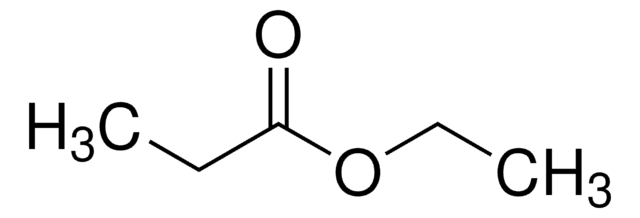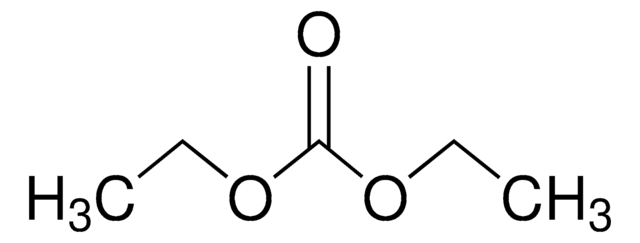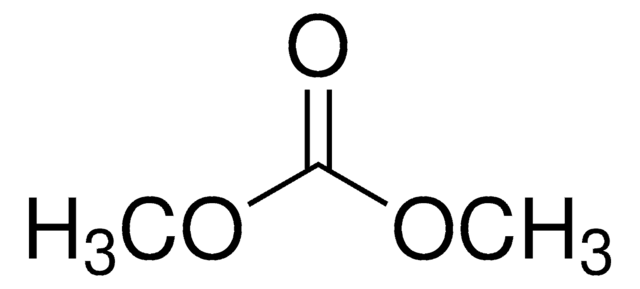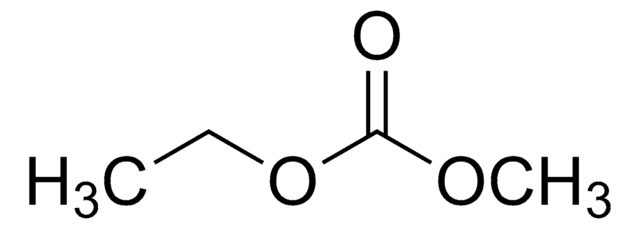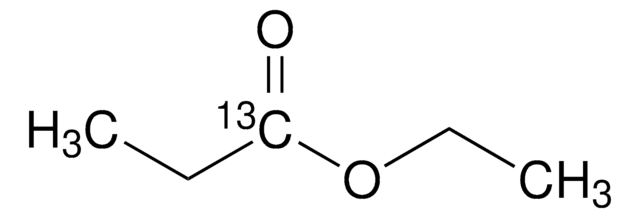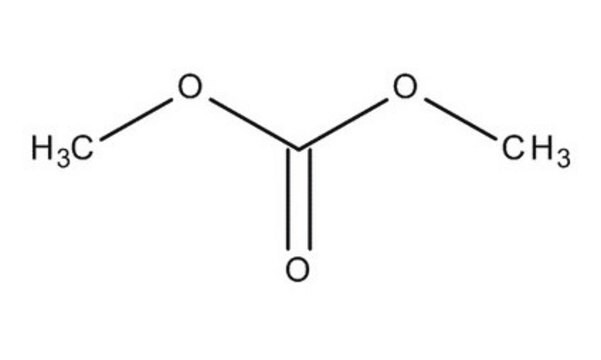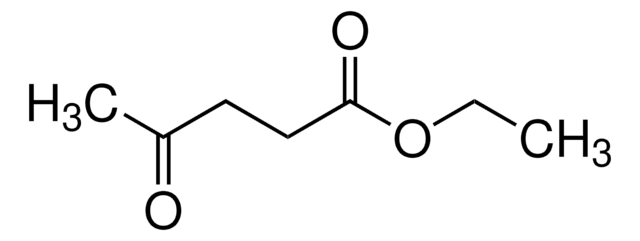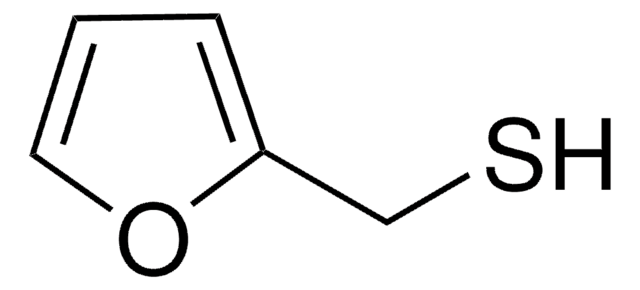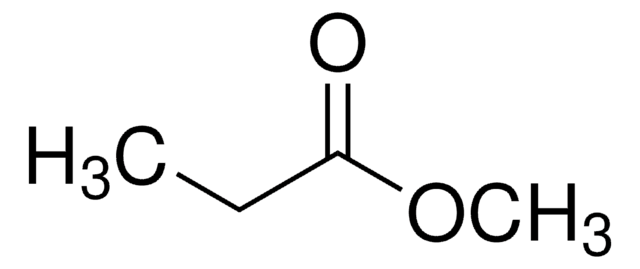W245615
Ethyl propionate
natural, ≥97%, FCC, FG
Synonym(s):
Ethyl propanoate, Propanoic acid ethyl ester, n-Ethyl propanoate
About This Item
Recommended Products
grade
FG
Halal
Kosher
natural
Quality Level
Agency
meets purity specifications of JECFA
reg. compliance
EU Regulation 1334/2008 & 178/2002
FCC
FDA 21 CFR 117
vapor density
3.52 (vs air)
vapor pressure
40 mmHg ( 27.2 °C)
Assay
≥97%
autoignition temp.
887 °F
expl. lim.
11 %
greener alternative product characteristics
Less Hazardous Chemical Syntheses
Use of Renewable Feedstocks
Learn more about the Principles of Green Chemistry.
sustainability
Greener Alternative Product
refractive index
n20/D 1.384 (lit.)
bp
99 °C (lit.)
mp
−73 °C (lit.)
density
0.888 g/mL at 25 °C (lit.)
application(s)
flavors and fragrances
Documentation
see Safety & Documentation for available documents
food allergen
no known allergens
greener alternative category
, Aligned
Organoleptic
grape; fruity; ethereal; rum; sweet; wine-like
SMILES string
CCOC(=O)CC
InChI
1S/C5H10O2/c1-3-5(6)7-4-2/h3-4H2,1-2H3
InChI key
FKRCODPIKNYEAC-UHFFFAOYSA-N
Looking for similar products? Visit Product Comparison Guide
General description
Signal Word
Danger
Hazard Statements
Precautionary Statements
Hazard Classifications
Eye Irrit. 2 - Flam. Liq. 2 - Skin Irrit. 2 - STOT SE 3
Target Organs
Respiratory system
Storage Class Code
3 - Flammable liquids
WGK
WGK 1
Flash Point(F)
53.6 °F - closed cup
Flash Point(C)
12 °C - closed cup
Personal Protective Equipment
Choose from one of the most recent versions:
Already Own This Product?
Find documentation for the products that you have recently purchased in the Document Library.
Customers Also Viewed
Our team of scientists has experience in all areas of research including Life Science, Material Science, Chemical Synthesis, Chromatography, Analytical and many others.
Contact Technical Service